Celebrate in Style || 6 of the Very Best Italian Festivals
The Best Italian Festivals || A Complete Guide and the Most Useful Words
Want to learn more about Italian festivals?
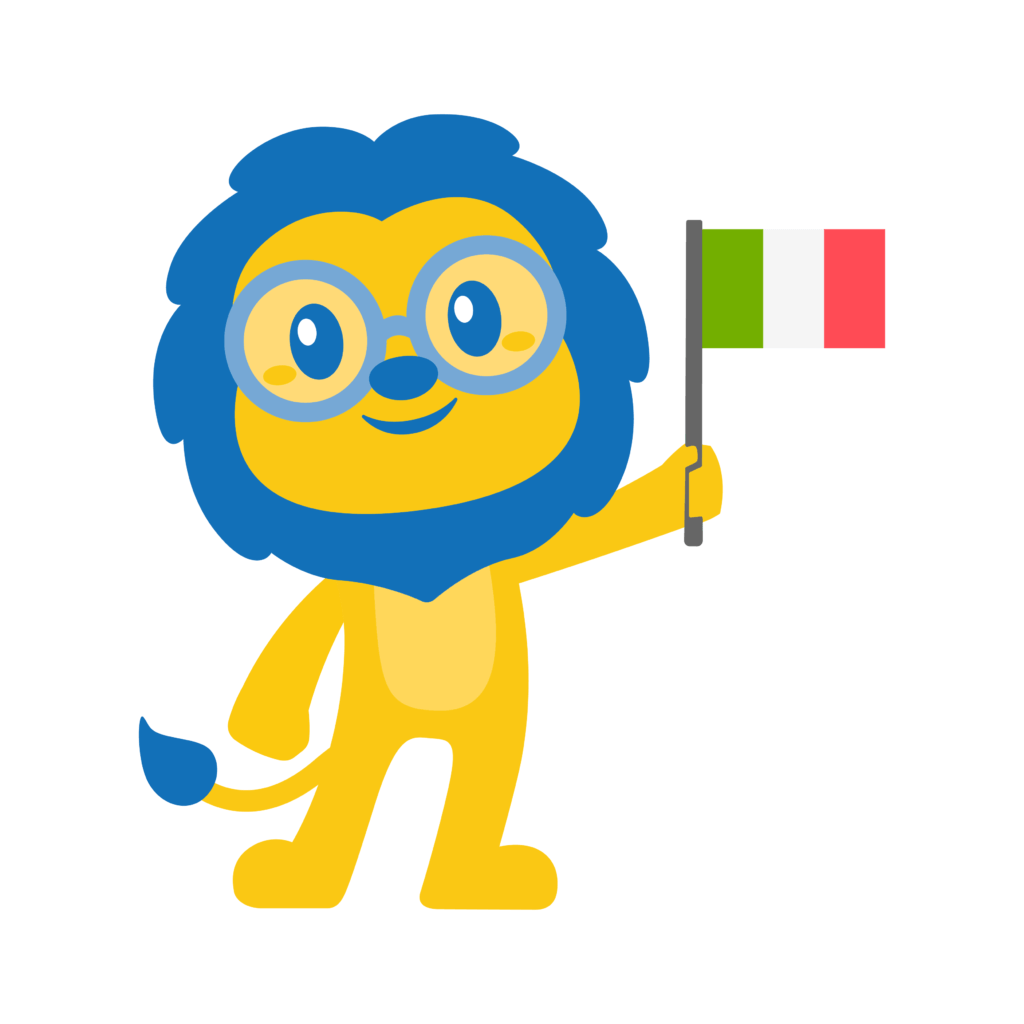
Then you have come to the right place.
In today’s article, we’ll talk about the most important Italian festivals.
We’ll take a look at the history behind them, how we Italians celebrate, and find out which is the most important Italian festival of all!
To find out, when and how they are celebrated, and learn the most useful proverbs or words, keep on reading!
Best Italian Festivals || Epifania
Best Italian Festivals || Pasqua and Pasquetta
Best Italian Festivals || Carnevale
Best Italian Festivals || Ferragosto
Best Italian Festivals || Natale
Best Italian Festivals || Capodanno
Best Italian Festivals || FAQs
Best Italian Festivals || Epifania
Epiphany (in Italian “Epifania“) is celebrated every year on January 6.
This day commemorates the visit of the Magi to Jesus in Bethlehem. This is the origin and religious meaning of the holiday.
However, this day is cherished by Italian children because it is believed that, on the night between January 5th and 6th, the Befana comes to visit.
The Befana is an old, if not slightly scary witch who rides on a broomstick.
On the night between January 5th and 6th, children hang stockings in their homes, which she fills with sweets and small gifts.
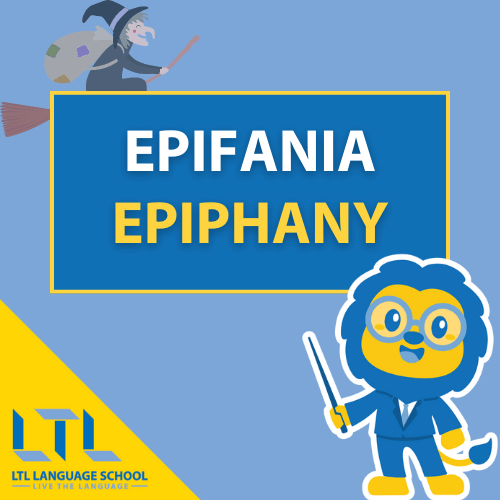
If the children have not behaved well during the year, she fills the stockings with coal, which is usually made of sugar, so they can eat it anyway.
On January 6th, many Italian squares hold celebrations for children.
During these festivals, children can meet the Befana, who hands out candy to everyone.
Epiphany is the last day of the Christmas break, therefore, in Italian we say “Epifania, che tutte le feste si porta via!“, which means “Epiphany, that carries away all holidays!“
Best Italian Festivals || Pasqua and Pasquetta
Pasqua (Easter) and Pasquetta (Easter Monday) are religious festivals celebrating the resurrection of Jesus.
Like many other holidays, besides the religious meaning and religious functions, which are followed by the most faithful Christians, Easter Day is also characterised by non-religious traditions.
In particular, Italian Easter customs are very much related to food.
On Easter Sunday, Italians usually have rich lunches with family, or with friends.
After all, in Italian we say “Natale con i tuoi, Pasqua con chi vuoi“
Christmas with your folks, Easter with whoever you want.
Whoever you decide to spend Easter with, the meal is usually very hearty.
Traditional dishes are made with lamb, although more and more people are opting for cruelty-free alternatives.
Another typical dish is torta pasqualina, a savoury pie for which there are many variations, and which usually contains hard-boiled eggs.
The typical dessert is the colomba pasquale, often filled with delicious creams.
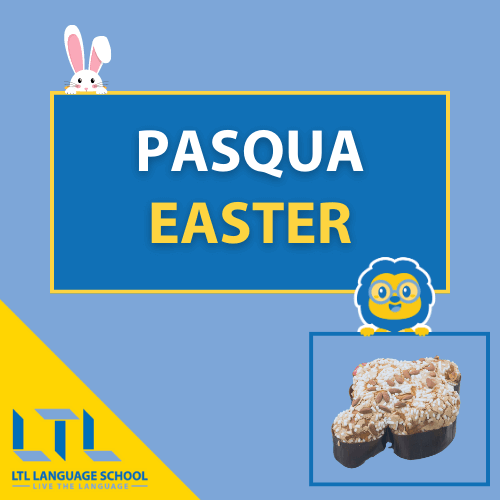
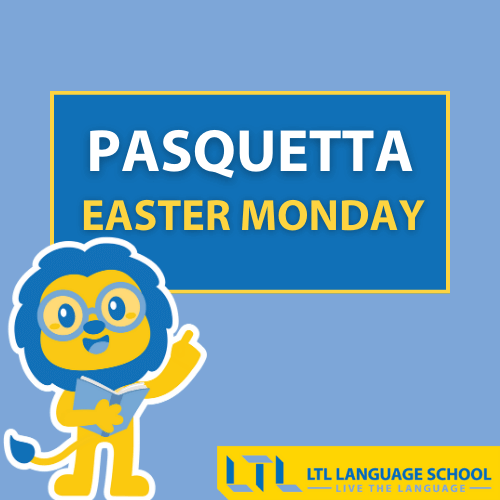
At Easter, it is customary to give children – as well as adults – Easter eggs (“uova di Pasqua“).
Italian Easter eggs are different from American ones. They are very large and they can be bought at the supermarket, wrapped in coloured wrapping paper, and contain a surprise.
They are not usually painted; they are simply made of milk, dark or white chocolate. It is also possible to buy artisanal chocolate eggs at bakeries.
While Easter lunch is usually held at home or in a restaurant, on Easter Monday Italians often plan trips out of town.

The 10 Best Italian Game Shows || Learn Italian Watching TV
Watching a TV quiz or game show is a great way to learn Italian while having fun. Find out the 10 most popular Italian game shows and how you can watch them.
Best Italian Festivals || Carnevale
Carnival isn’t celebrated on a single day, it is a festive season that comes right before Lent.
The biggest celebrations are held on “Martedì grasso“, literally “Fat Tuesday”.
The word Carnevale derived from the Latin “carnem levare” and means “to eliminate meat.”
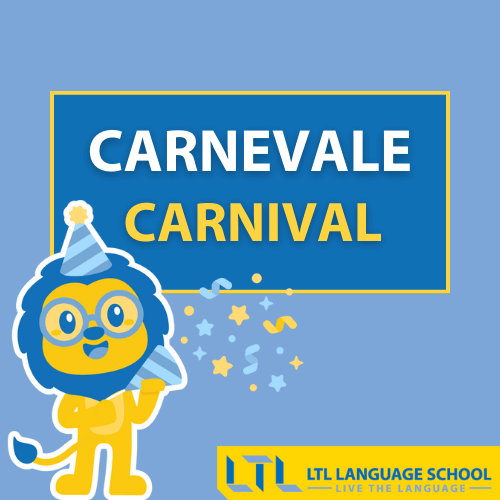
This is because the festival, in Catholic tradition, represents a time of celebration preceding Lent, a period of fasting and abstinence in anticipation of Easter where, especially in the past, people avoided eating meat.
Carnival is a festival linked to the Catholic and Christian worlds, but it originates from much earlier times, when the dominant religion was paganism.
In fact, the holiday draws its origins from the Saturnalia of ancient Rome or the Dionysian festivals of the classical Greek period.
During these festivals, it’s okay to let loose, to free oneself from obligations and commitments, and to engage in pranks and play.
In Italian there’s a famous saying: “A Carnevale, ogni scherzo vale!“
“During Carneval, anything goes!”
Today, Carnival is celebrated in all Italian cities, where street parties and parades are organized.
However, in some cities the celebration is much more heartfelt: for example, the carnival celebrations in Venice, Viareggio, and Cento are very famous.
Each region has its own traditional carnival masks, such as Arlecchino, Pulcinella, Gianduja, Pantalone, and Balanzone.
These characters still represent carnival today and can be seen on carnival floats or in shows.

However, today’s children usually prefer more modern costumes, and they usually dress up as their favourite cartoon characters.
During Carnival, Italians eat many traditional desserts such as castagnole and chiacchiere (deep-fried pastry made out of dough shaped into twisted ribbons).
FUN FACT about chiacchiere || depending on the Italian region, they are known as many different names like “bugie“, “cenci“, “frappe“, “frappole” and, in my area, “fiocchetti“.
Best Italian Festivals || Ferragosto
Ferragosto is celebrated every year on August 15th.
This holiday’s name comes from the Latin feriae Augusti (Augustus’ rest), in honor of Octavian Augustus, the first Roman emperor.
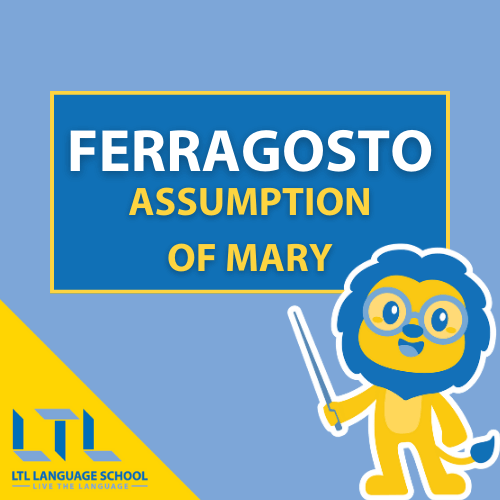
The holiday was assimilated by the Catholic Church around the seventh century, when people started celebrating the Assumption of Mary on this day.
On Ferragosto day, Italians usually:
- Organise out-of-town trips (“gite fuori porta“).
- Have picnics with friends or family.
- Spend time at the beach, lake or river.
It’s not a surprise to see Italian towns and cities appearing like ghost towns during Ferragosto as Italians love to take a break from their hometowns.
Children (and adults) often throw water balloons at each other. In Italian, these are called “gavettoni.”
Best Italian Festivals || Natale
On the evening of December 24th, (“Vigilia di Natale“), Italians usually gather with their relatives and eat a sumptuous dinner.
This is called “cenone della Vigilia“ and, traditionally, is fish-based.
On Christmas Day (“Natale“), we keep eating, with another lavish lunch.
Especially in Southern Italy, these meals are really rich and people sit at the table all day.
Typical dishes vary greatly by region, but throughout Italy, panettone or pandoro are a must-have at the end of the meal.
There is a strong debate among Italians about which one is better:
- The traditionalists defend panettone with raisins and candied fruit.
- The more modern ones prefer pandoro, often filled with Nutella or other creams.

As in other countries, on Christmas night Santa Claus (“Babbo Natale“) brings gifts to children who have behaved well.
Italians decorate their homes with a Christmas tree (“albero di Natale“), and some also build a nativity scene (in Italian, “presepe“).
If you are in Italy for Christmas, in churches or city centres you will be able to admire wonderful nativity scenes, including mechanical ones, or ones played by actors, called “presepe vivente“.
Best Italian Festivals || Capodanno
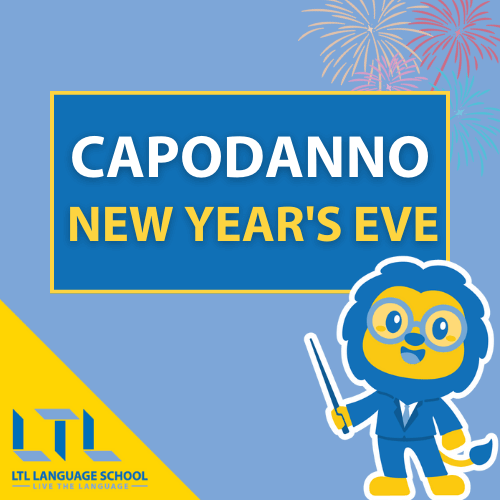
On New Year’s Eve (“Capodanno“), in Italy, we eat… surprising, isn’t it?
The typical dishes at New Year’s Eve dinner are:
- Cotechino, a slow-cooked pork sausage.
- Lenticchie (lentils), which are believed to bring money.
At midnight, toasts are raised and fireworks are shot off.
If you are at a party, this song will probably start playing at midnight, and you will inevitably get caught in a “trenino di Capodanno” (conga line).
Of course, Italians also celebrate other holidays such as Valentine’s Day, International Women’s Day, Halloween, and so on.
However, the holidays listed in this article are the most special and symbolic ones in Italian culture.
Did you already know them all? Let us know in the comments!
Best Italian Festivals || FAQs
When is epiphany celebrated in Italy?
Epiphany (in Italian “Epifania“) is celebrated every year on January 6.
What are the typical dishes that Italians eat at Easter?
– Lamb
– Torta pasqualina, a savory pie for which there are many variations, and which usually contains hard-boiled eggs.
– Colomba pasquale, often filled with delicious creams.
– Easter eggs
What’s Carnevale?
It is a festive season that comes right before Lent.
What Italians do on Ferragosto?
– Organise out-of-town trips (“gite fuori porta“).
– Have picnics with friends or family.
– Spend time at the beach, lake or river.
How do you say “Christmas” in Italian?
Christmas in Italian is Natale.
What are the differences between pandoro and panettone?
Panettone is with raisins and candied fruit.
Pandoro has no raisins or candied fruit and it is often filled with Nutella or other creams.
Which would you prefer?
Want More From LTL?
FANCY LEARNING ITALIAN? Check out our online Italian courses here.
We offer a 7-day free trial to all online students where you can study Italian 24/7. It doesn’t just end with Italian.
Come and be a part of our amazing community.










